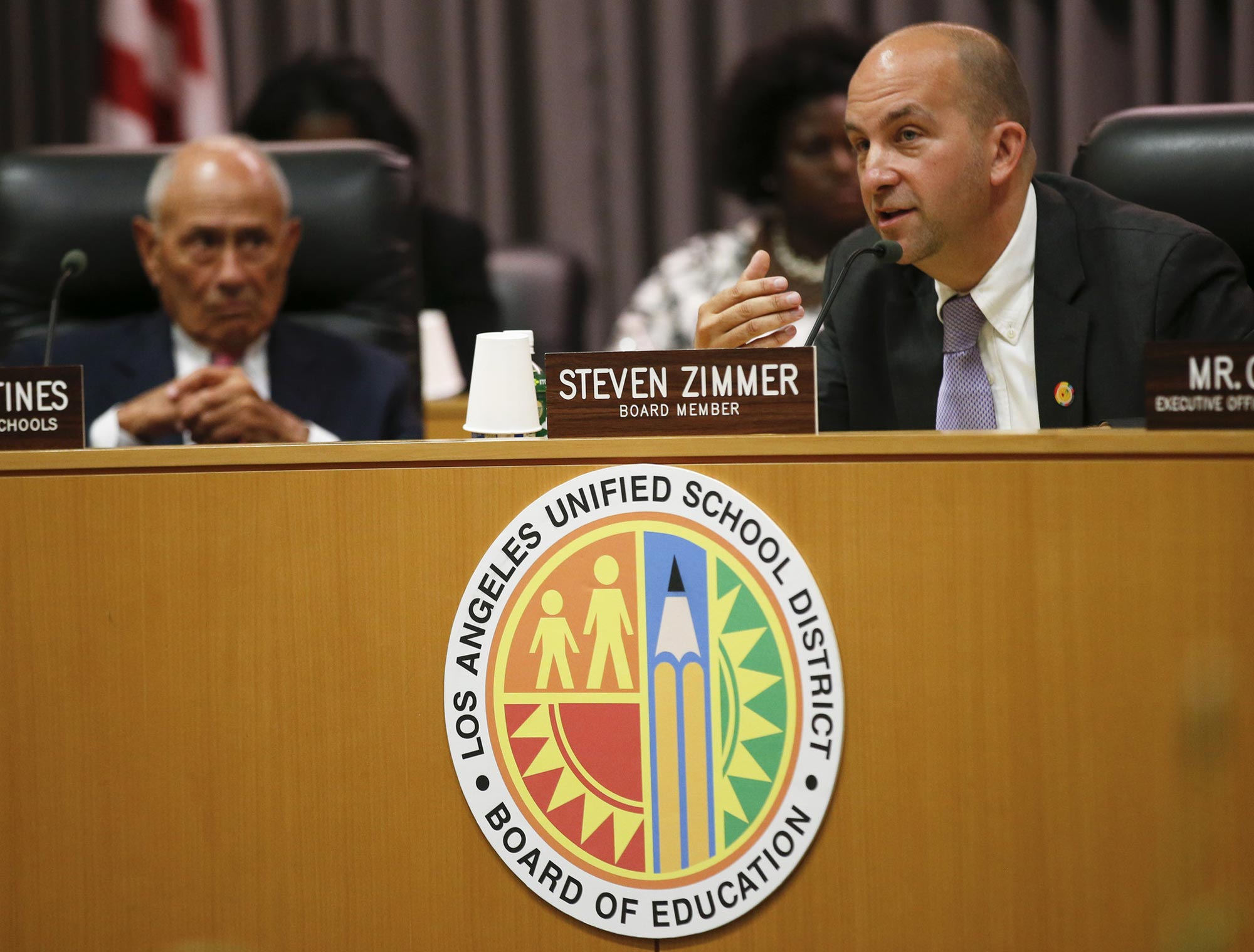The Los Angeles Unified School District will require all students to pass a college-preparatory curriculum beginning next fall. The Class of 2016, next year’s ninth-graders, will be the first in the nation’s second-largest school system who must take those courses needed to apply to a four-year state university.
The Board of Education approved a proposal Tuesday that also allows the students to pass those classes with a D — rather than the C needed for admission to either a Cal State or UC school.
The new requirements are necessary whether students go directly to college or to a job, L.A. schools Supt. John Deasy said.
“This is all about a kid’s civil rights,” Deasy said in an interview. “This is responding to the demands of the community for a meaningful, robust diploma. This is about making sure kids are competitive in the workforce. What does it say about us if we don’t attempt to do this for all students?”
Students “will rise to the challenge as they always do,” he told the Board of Education. “Gone must be the days when some youth get orange juice and some get orange drink.”
In 2005, the school board agreed to the more rigorous graduation requirements for the Class of 2016. But the wording did not specify what grade students would need. Some activists as well as some former board members and district staff said the intent was to require a minimum of a C.
The plan approved Tuesday calls for phasing in a requirement that students earn a C or better in college-prep classes, starting with the Class of 2017. Officials asserted that no school system in California has ever required all graduates to earn a C or better in a college-prep curriculum.
In the Class of 2011, 15% of students who started together in ninth grade earned at least a C in all the college-prep classes; 21% got at least a D.
Some critics said the plan could drive up the dropout rate. Others said the proposal was a poorly developed, overly hasty attempt to make up for years of inaction.
Also Tuesday, the board overruled a key provision of the proposal that sought to reduce the total number of course units needed to graduate to 180 from 230. It would have eliminated most requirements to take electives.
Instead, the board reduced the required credits to 210 after a proposal from board member Steve Zimmer. If electives are not required, they might disappear or be diminished, and such classes motivate students and enhance their education, he said.
Numerous speakers at the board meeting defended this view. Juan Luis Romero Sosa, a junior at the Los Angeles High School of the Arts in Koreatown, said he would not be speaking English nearly as well without his acting class, an elective.
“While having fun, I’m learning skills that will be vital for life, like speaking clearly in front of a crowd,” he said.
A report last week from UCLA‘s Institute for Democracy, Education, & Access suggested that a school might be less inclined to offer an elective such as calculus. Other districts that mandate a college-prep curriculum have not also reduced the total number of classes needed to graduate, the report said.
Deasy and Deputy Supt. Jaime Aquino defended their approach as striking the right balance between rigor and support for students. The overall academic load should be reduced to help students pass the most important courses, they said.
Students who don’t pass college-prep classes would have room in their schedule to take them again, or use a class period for tutoring help, making them less likely to drop out, they said.
State budget cuts have limited options for helping students outside the regular schedule, such as during summer school, they said.
Marguerite Poindexter LaMotte, the only holdover from 2005, voted no then and remained a skeptic. She cast a dissenting vote this time along with Bennett Kayser.
“Do I never finish high school because I finished geometry with a D?” LaMotte asked, alluding to the requirements for the Class of 2017. “Walk me out of that. That means I would not finish high school.”
The administrators union called for a delay to develop a fuller plan. The teachers union opposed reducing the required credits. Its president, Warren Fletcher, also said that since 2005, the district has failed to prepare students and staff for the new curriculum.
But board member Nury Martinez called the district plan a necessity. Unlike students elsewhere, she said, L.A. Unified’s “students struggle with filling out an application to McDonald’s because we fail them … I believe the difference is our expectations.”





